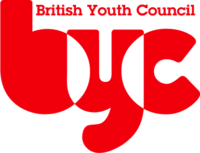News articles
British Youth Council welcomes investment in young people’s voices
The British Youth Council is delighted to welcome the continued funding of UK Youth Parliament and the charity’s youth voice activities which amplify young people’s efforts to bring about social change. The partnership between the charity and the Department for Culture, Media and Sport forms part of the UK Government’s renewed efforts for ensuring young
- Published in News, Press, UK Youth Parliament
UK Youth Parliament launch campaign partnership on Universal Free School Meals
UK Youth Parliament launches their UK-wide campaign for Universal Free School Meals with a new partnership with Child Poverty Action Group (CPAG). This campaign was chosen by Members of Youth Parliament from an elected Social Action Group, and focuses the outcome of the UK Youth Parliament’s House of Commons sitting, when the cost of living
- Published in News, UK Youth Parliament, Youth Voice
Young people want better political education, votes at 16 and relaxed voter ID rules to improve political engagement
Better political education, lowering the voting age to 16, and relaxed voter ID rules are the three biggest changes that young people want to help them to vote, according to new research from The British Youth Council and The Body Shop. Currently, over 1.5 million 16-and-17-year-olds in the UK do not have a say in
- Published in APPG on Votes at 16, News, Press, Votes at 16, Voting
British Youth Council calls for an independent investigation into missing asylum-seeking children
The British Youth Council is alarmed by recent reports hundreds of child asylum-seekers have gone missing from the Home Office’s duty of care. Reports state approximately 200 asylum-seeking children have been reported missing from the government’s hotels. The children’s charity is always concerned to hear of cases where children go missing but, in this instance,
- Published in News, Press, UK Young Ambassadors
Scottish trans people deserve better
The British Youth Council has expressed deep concern at the government’s unprecedented decision to intervene in new legislation which was due to simplify the process for legal recognition of trans people’s gender in Scotland. The government has announced it will use Section 35 of the Scotland Act to block the Scottish Government’s attempts to bring
The British Youth Council to receive Queen Elizabeth II Platinum Jubilee Volunteering Award
The British Youth Council is delighted to accept a Queen Elizabeth II Platinum Jubilee Volunteering Award, in recognition of the work it does for young people across the UK. Receipt of the award, which aims to celebrate the work done by national charities to empower young people, was confirmed in late November and approved by
The 2023 NHS Youth Forum Reports are here!
The NHS Youth Forum are 24 young people who are passionate about improving the NHS. They work with NHS England, Public Health England and the Department of Health, enabling them to have a genuine impact on health services. This year there are four sub-groups to the NHS Youth Forum, each tackling a different area of
- Published in News, NHS Youth Forum
UK Youth Parliament to campaign on the cost of living crisis and health
UK Youth Parliament has chosen to focus on the cost of living and health. The new campaign has been declared following the UK Youth Parliament’s debate in the House of Commons chamber on Friday 4th November 2022. Mental health and wellbeing was announced as the biggest issue for young people in the UK. The sessions
- Published in News, Press, UK Youth Parliament
British Youth Council reiterates priorities to new Minister for young people
The British Youth Council has written to Stuart Andrew MP, Minister for Sport, Tourism and Civil Society, who now has responsibility for policy relating to children and young people at the Department for Digital, Culture, Media and Sport. The new appointment follows the appointment of Rishi Sunak MP as Prime Minister. The charity used the
UK Youth Parliament to debate biggest issues facing young people in the Commons
On Friday 4th November, Members of the Youth Parliament will debate topics related to health. 249 Members of Youth Parliament from across the UK will participate in the Commons debate, focussing on health-related issues as diverse as the cost of living crisis and the ongoing effects of climate change. The sitting will be the eleventh
- Published in News, Press, UK Youth Parliament











